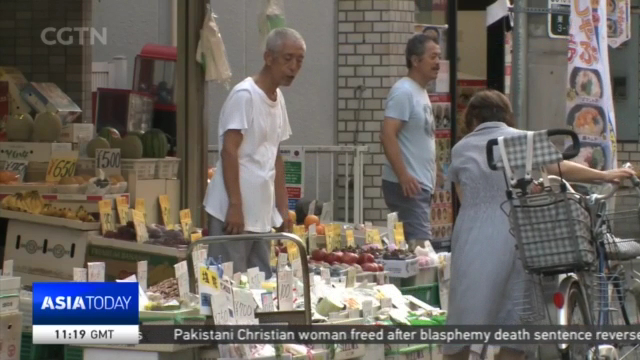
19:40, 08-Nov-2018
Japan's Aging Population: Pressure amounts as one in three is aged and needs extra care
Updated
18:47, 11-Nov-2018
02:30

The world leader for an aging society is Japan. It's currently the world's only country with more than 30 percent of its population aged 60 or above, and the percentage is still growing. Terrence Terashima takes a look at the problems this has created and what communities are doing to solve them.
For decades, Japan's rapidly aging society has been a headache for the Japanese government. Social welfare schemes were always just temporary, while the country's debt keeps piling up to support the increasing social welfare costs. Experts say governments have lacked bold measures to stop the momentum of the aging country. Some say now it has reached a point of no return.
NOZOMI AKASHI, GENERAL MANAGER KAWAKITA MEDICAL FOUNDATION "It is not only an aging population but a decrease in the birth rate. We are losing the working population. In the society as a whole and in service providers in the social care system, while the number of elderly needing care is rapidly increasing."
It has become a serious social problem. People quit their jobs to care for their parents, the elderly caring for the elderly, and an increase in suicides when the burden becomes too much.
TERRENCE TERASHIMA TOKYO "Problems arising from the fast aging society is more apparent in residential areas on the outskirts of large cities. Experts say they need medical institutions, social workers and municipal governments, all to coordinate in tackling the problem."
It is estimated that 800 to 900 thousand elderly people have withdrawn from society, rarely leaving their homes. Nozomi Akashi from Kawakita Medical Foundation said the social care system in Japan is too divided to address these problems. She says, what is needed now is keeping elderly people healthy and reduce medical bills.
NOZOMI AKASHI, GENERAL MANAGER KAWAKITA MEDICAL FOUNDATION "Now it is not about providing Medicare or about nursing care, but about keeping the elderly healthy both physically and mentally. And also helping them care for their daily lives and be part of society."
The key is not to confine these elderly people inside their homes or hospitals. It's providing facilities to stay fit, and home care or rehabilitation when it's necessary. A seamless collaborative network within local communities, including social care and medical institutions, is essential to address Japan's acute aging society. Terrence Terashima, CGTN, Tokyo.

SITEMAP
Copyright © 2018 CGTN. Beijing ICP prepared NO.16065310-3
Copyright © 2018 CGTN. Beijing ICP prepared NO.16065310-3